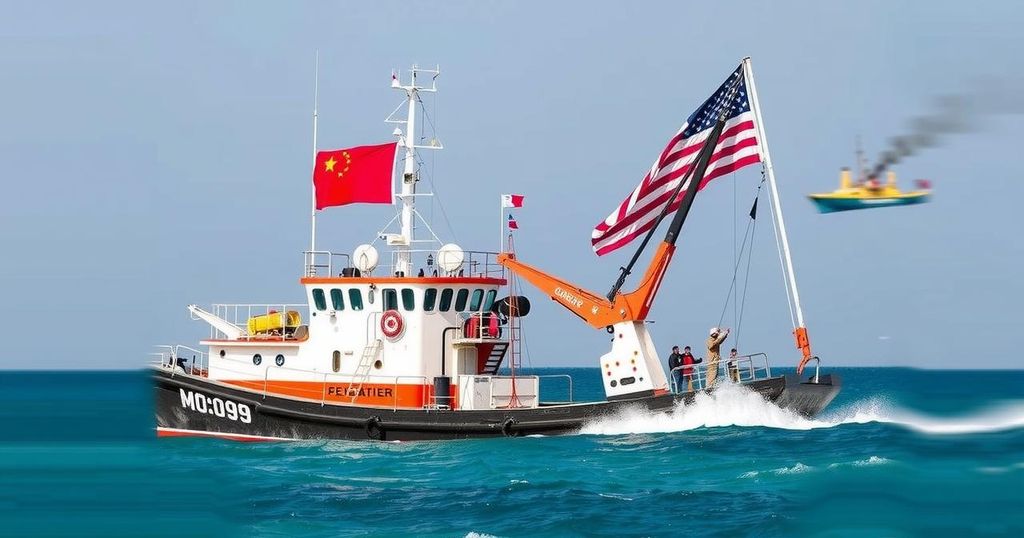Tropical storm Dikeledi is moving towards Mozambique after causing three deaths in Madagascar and severe flooding in Mayotte. The authorities remain on high alert due to the storm’s impact while residents recover from previous cyclone damages. As Dikeledi approaches, it is expected to intensify, raising concerns for the vulnerable regions in its path.
Tropical storm Dikeledi has made its way towards Mozambique after causing significant destruction in Madagascar, where it left three fatalities and triggered severe flooding in Mayotte. The cyclone, which hit Madagascar over the weekend, brought sustained high winds and intense rainfall, resulting in extensive damage. Currently, Dikeledi has been downgraded to a severe tropical storm and is situated about 150 kilometers off Mozambique’s coast, anticipated to strengthen as it moves through the warm waters of the Mozambique Channel.
The storm’s impact is particularly pronounced in Mayotte, where the local population is still recovering from Cyclone Chido, which earlier resulted in 39 fatalities and thousands of injuries. Emergency alerts remain in place, with measures taken to safeguard residents, including travel restrictions imposed under a red alert. Although no casualties have been reported from Dikeledi, significant rainfall continues to pose risks, particularly in coastal areas and vulnerable communities. As the region remains in the midst of its rainy season, concerns persist over the potential for further impacts as Dikeledi approaches.
Authorities in Mayotte have mobilized over 4,000 personnel, including police and military, in response to the storms. Accommodation centers have been established to support those displaced by the adverse weather conditions. Dikeledi’s trajectory poses considerable threats to the Nampula region of Mozambique, with officials warning of potential flooding and destructive winds as the system approaches, highlighting the escalating risks associated with tropical cyclones in the region due to global warming.
This article discusses the impact of Tropical Storm Dikeledi, which has led to fatalities and destruction in Madagascar and Mayotte. The storm’s progression towards Mozambique raises concerns about safety and recovery from previous cyclones, particularly Cyclone Chido. This context highlights the vulnerability of island territories like Mayotte, which have already suffered extensive damage. Additionally, the influence of climate change on cyclone intensity is noted, as rising ocean temperatures contribute to the severity of storms in the Indian Ocean.
In summary, Tropical Storm Dikeledi is exacerbating the already challenging situation in the Indian Ocean region, particularly for Madagascar and Mayotte. With severe weather conditions persisting, authorities are taking proactive measures to safeguard communities, especially in light of past cyclone damages. Dikeledi’s approach towards Mozambique signifies a critical threat, necessitating continued monitoring and readiness to respond to potential humanitarian crises.
Original Source: www.arabnews.com






